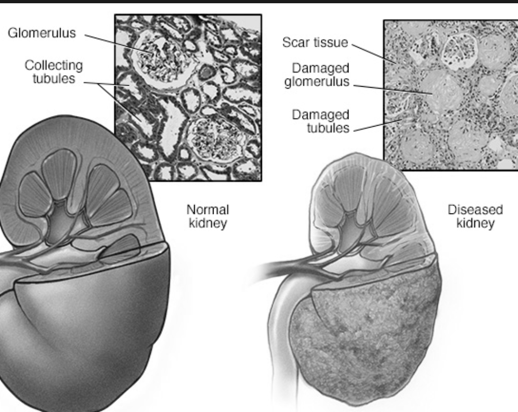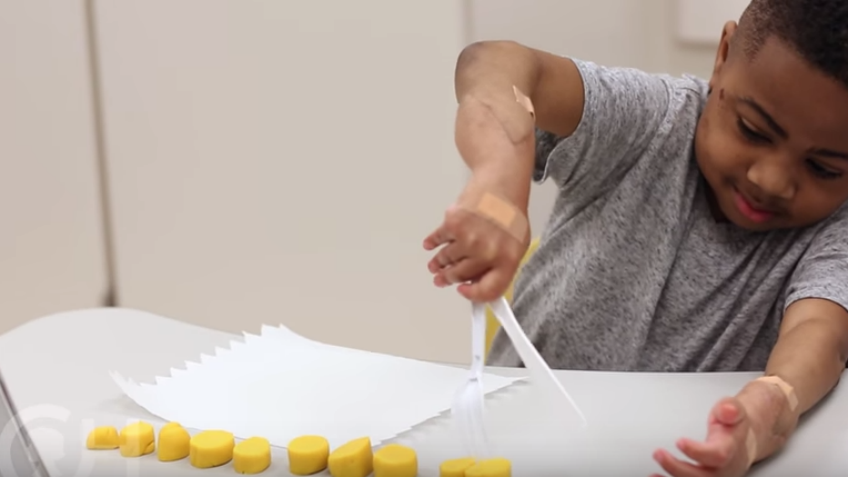When kidneys can no longer do the job from end-stage renal disease (ESRD), a transplant may be necessary. ESRD is also known as renal failure, severe kidney failure, and stage 5 chronic kidney disease.
Whatever you call it, it's time for extreme measures because now the body rapidly becomes toxic. Waste is mounting, blood pressure rises, and the body suffers from edema (fluid retention) and insufficient red blood cells.
In the event of renal failure, kidney transplantation is only one option. Dialysis is another alternative. But a transplant is the best way to regain health, and frees the recipient from dialysis.
However not everyone is a candidate for kidney transplant, as donors are in shorter supply than recipients. So there is a waiting list for transplant candidates.
Some people aren't eligible for the waiting list. Heart or vascular disease, advanced age, cancer, psychosis (mental illness), obesity, drug or alcohol abuse are some of the disqualifying factors.
It sounds harsh but it is a matter of logistics. Only so many kidneys are available, which go to people with the best shot at living long with the transplants.
A transplantation is serious surgery and there are dangers to any surgery. The possibility of bleeding, infection and unexpected complications are very real. Even after successful surgery, the recipient must take medication (immunosuppressive therapy) to prevent organ rejection (the immune system attacks the new kidney as a foreign invader).
Unfortunately this medicine may increase the risk of infection or cancer. The recipient will be monitored for rejection and cancer for the rest of their lives. High blood pressure (hypertension), high cholesterol and diabetes can result from medication.
After a successful transplant however, life will be better than it was before. About 90 percent of recipients are alive and well after the first year and over 70 percent are still living after five years.
A kidney can come from living or deceased donors. Kidneys from living donors work better, and a relative is the best option. Blood type is important. Of the four blood types (A, B, AB and O) the recipient and donor must be of the same type or at least compatible.
The AB blood type is called the universal recipient because it is compatible with all other types. Blood type O is called the universal donor, and is the hardest to match because people of this type are only compatible with blood type O donors.
Resources:
Kidney Transplantation, Surgical Complications
http://emedicine.medscape.com/article/378801-overview
MedlinePlus: Kidney transplant
http://www.nlm.nih.gov/medlineplus/ency/article/003005.htm
emedicinehealth.com: Kidney Transplant
http://www.emedicinehealth.com/kidney_transplant/article_em.htm
Dialysis or kidney transplantation -- which is right for me?
http://www.uptodate.com/patients/content/topic.do?topicKey=~MSMtBwVDqkDVzS
UCSF Medical Center: Kidney Transplant
http://www.ucsfhealth.org/adult/medical_services/organ_transplants/kidney/conditions/kidney/diagnosis.html
Visit Jody's website and blog at http://www.ncubator.ca and http://ncubator.ca/blogger






Add a Comment2 Comments
Blood type is important.???
http://www.glycorex.se/eng/
"Glycorex Transplantation AB (publ.) markets products that decrease the risk of graft-rejection. The products facilitate an increased number of transplants. The company market products enabling an increased number of transplants. The products are clinically used enabling ABO-incompatible transplants at several European transplant centres, and also at transplant centres in Turkey, Singapore and Australia."
"Mirror journalist Steve Purcell: Amazing new kidney treatment has given me my life back"
May 11, 2010 - 2:23pmhttp://www.mirror.co.uk/life-style/real-life/2010/02/19/mirror-journalist-steve-purcell-amazing-new-kidney-treatment-has-given-me-my-life-back-115875-22053329/
This Comment
The right foods are the best solution for you to manage blood sugar use this free meal planner http://bit.ly/daDZ9s
May 11, 2010 - 12:26amThis Comment